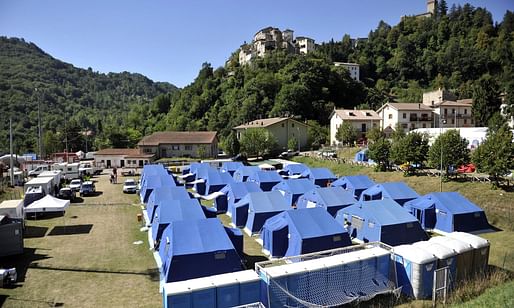

The 6.2 magnitude earthquake that hit central Italy on August 24 reduced the medieval towns of Amatrice, Accumoli and Pescara del Tronto to ruins, and has claimed the lives of at least 290 people. With over 3,000 people displaced by the quake's damage, Italy's prime minister Matteo Renzi called on "Italian senator for life" Renzo Piano to lead the reconstruction and disaster prevention efforts in response.
The current plan is to build lightweight wooden structures to house the majority of the displaced residents, and then begin reconstruction of the towns in six to eight months. Piano, speaking to The Guardian, spoke to the importance of government regulation in addition to rebuilding quickly: "Anti-seismic requirements must be inserted in the laws of the country to make our homes safe, just as it's compulsory for a car to have brakes that work."
Piano has previous experience working in "high-risk quake zones" in Japan and California, but admitted to The Guardian that working in Italy also comes with significant complications from corruption and "bureaucracy and illegality" that may threaten buildings' seismic integrities. Italian state prosecutors are looking into the collapse of relatively new public buildings that should have been seismically secure. Others in Italy have rejected rebuilding the medieval towns at all, as they were losing populations anyway and it would be too expensive. Paolo Beccegato, vice director of Caritas, a Catholic charity working in the areas devastated by the quake, proposes rethinking the areas entirely instead.
Related on Archinect:
No Comments
Block this user
Are you sure you want to block this user and hide all related comments throughout the site?
Archinect
This is your first comment on Archinect. Your comment will be visible once approved.